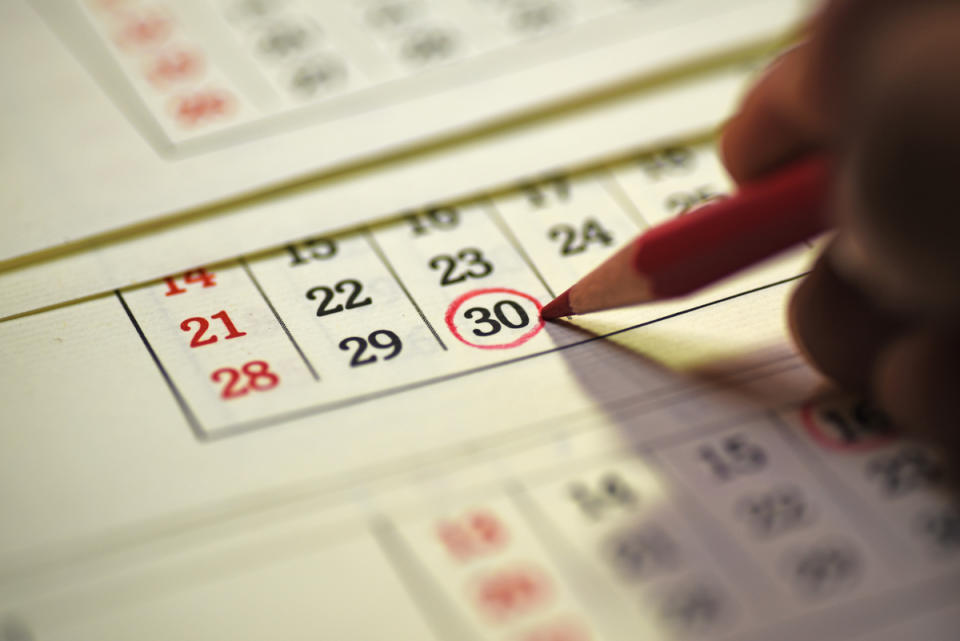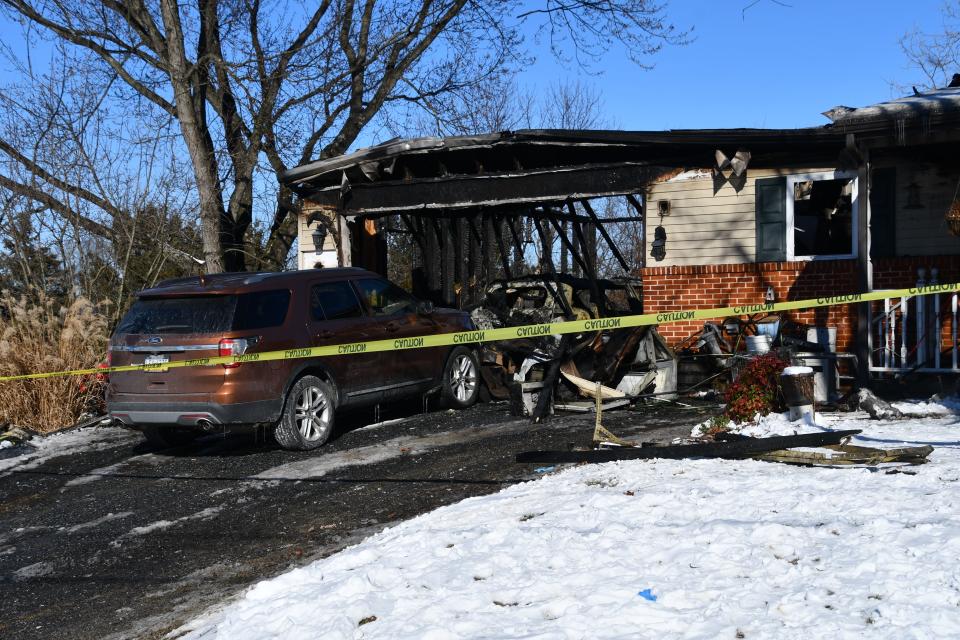COLLEVILLE-SUR-MER, France — For the most part, Joe Biden’s address marking the 80th anniversary of D-Day sounded like a familiar ode to a historic war victory — but tucked into the speech was a warning to Americans.
Biden name-checked the World War II veterans who sat behind him on stage in wheelchairs, blankets draped over their laps in the early afternoon chill. He praised their sacrifice in defeating Nazi tyranny. He highlighted the importance of alliances.
But he slipped in a plea to those who will decide in a few months whether he remains in power: Democracy is a fragile thing and, all these years later, the battle for its survival is still in doubt.
“Let us be the generation that when history is written about our time in 10, 20, 30, 50, 80 years from now, it will be said when the moment came, we met the moment,” Biden said. “We stood strong, our alliances were made stronger. And we saved democracy in our time as well.”
Biden never mentioned his Republican rival by name, but his speech offered an implicit critique of Donald Trump’s “America First” approach that devalues the post-war alliances that the U.S. helped build to ensure its security.
He spoke proudly about how the NATO military alliance has expanded on his watch — Finland and Sweden joined since he became president — providing a bulwark against Russian aggression. Trump repeatedly threatened to pull out of NATO and some worry that he would go through with it if elected to another term.
Biden used the speech to argue that, despite Trump’s complaint that European allies don’t contribute enough to NATO and rely on the U.S. to fill the gap, the alliance is essential to beating back present-day dictators.
“America has invested in our alliances and forged new ones,” he said, standing at a lectern above Omaha Beach, where U.S. troops waded ashore 80 years ago in the face of withering fire. “America’s unique ability to bring countries together is an undeniable source of our strength and our power. Isolationism was not the answer 80 years ago and is not the answer today.”
Neglecting the alliances the U.S. helped forge would embolden Russian President Vladimir Putin as he wages a war meant to swallow up Ukraine, Biden suggested.
If Russia wins, it will inevitably try to build on the victory by menacing other European states that are members of NATO, he said. That, in turn, could trigger a wider war: NATO’s Article 5 holds that an attack on one is an attack on all.
“We cannot let that happen — to surrender to bullies, to bow down to dictators is simply unthinkable,” Biden said, standing near the gravesites of more than 9,000 U.S. soldiers who died on D-Day or later.
Just as the U.S. faced a mortal challenge in World War II, the country is now again “in our hour of trial,” he said. “We’re living in a time when democracy is more at risk across the world than at any point since the end of World War II.”
“Now we have to ask ourselves, will we stand against tyranny?” he said. “Against evil? Against the crushing brutality of the iron fist? Will we stand for freedom when we defend democracy? My answer is yes, yes, and can only be yes.”
Biden will return to the area on Friday to deliver another speech at Pointe du Hoc, where U.S. Army Rangers scaled sheer cliffs to neutralize German guns and open a path for the allies to retake France. He’ll hold meetings with his French counterpart, Emmanuel Macron, in Paris on Saturday and head home the next day.
Though Biden boasted that a spirit of unity suffuses NATO’s 32 member countries, fissures have grown more pronounced. Not all of Europe has rallied behind either Biden’s democratic vision or his candidacy.
Hungary’s prime minister, Viktor Orban, is friendly with Trump and has drawn criticism over illiberal steps such as weakening the judiciary and undermining the nation’s independent media. Orban has also been more skeptical about sending additional aid to Ukraine, in contrast to Biden, who has spent billions to strengthen Ukraine’s battlefield capabilities. He said Thursday that Ukraine’s allies will not “walk away.”
Another European leader, Poland Prime Minister Andrzej Duda, visited Trump in New York in April. A Duda aide later said that the prime minister and Trump were “friends” who used the time to reminisce together about how they cooperated when Trump was still president.
Biden will return to Europe next week for a Group of Seven (G7) summit meeting of the world’s richest democracies in southern Italy. A question Biden may get in private meetings is how confident he is in his re-election prospects.
In an interview with Time Magazine on May 28, Biden insisted that his counterparts are unified in wanting Trump to lose.
“There’s not a major international meeting I attend that before it’s over … that a world leader doesn’t pull me aside as I’m leaving and say, ‘He can’t win. You can’t let him win,'” Biden told the magazine.
This article was originally published on NBCNews.com
Signup bonus from





